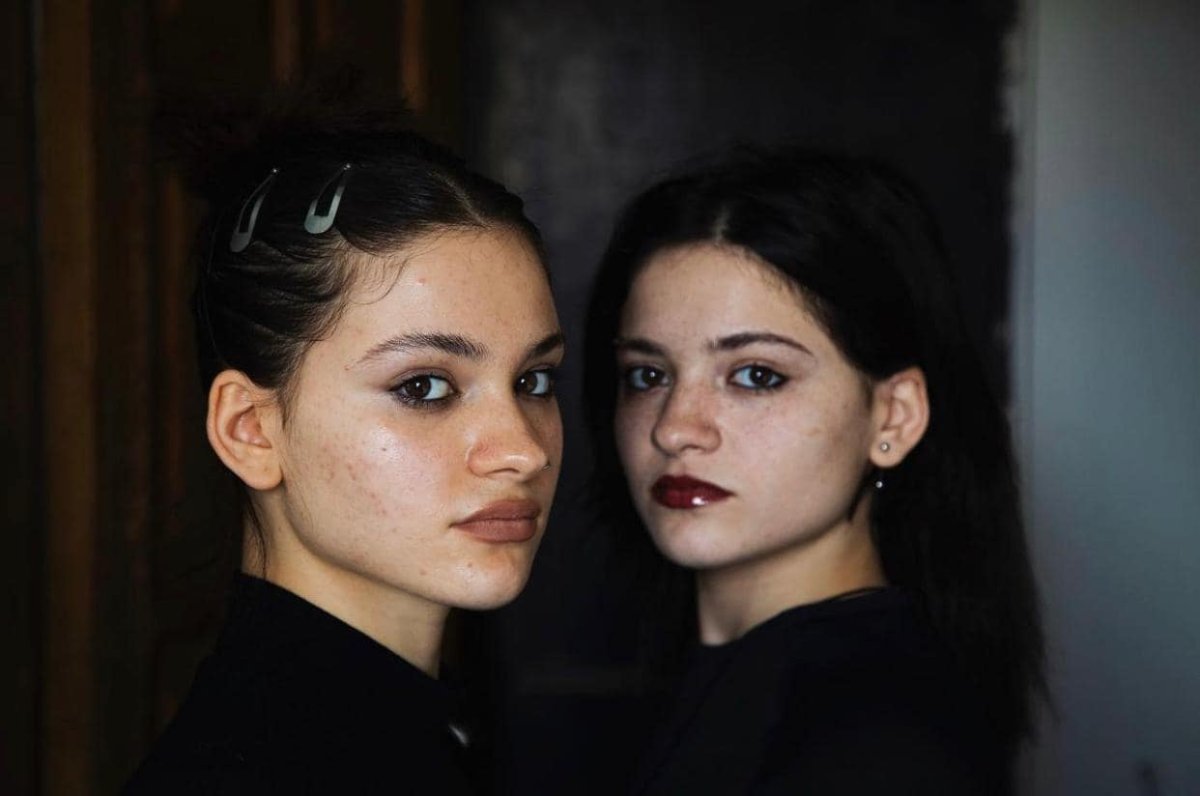Two Georgian twins, separated at birth when they were sold to different adoptive families, have been reunited and have TikTok to thank for bringing them back together.

The astonishing story begins 10 years ago when one of the twins, Amy Khvitia, sat watching Georgia’s Got Talent in her godmother’s house near the Black Sea.
A young girl, who looked exactly like her, climbed up on stage and began to dance in front of the reality show’s judges.
“Everyone was calling my mum and asking: ‘Why is Amy dancing under another name?’” she told the BBC.
However, when she brought it up with her mom, she was told it was just a coincidence.
“Everyone has a doppelganger,” Amy recounted her mother as saying.
Another seven years went by when Ano Sartania, the young girl that had danced on television, was sent a Tik Tok video of a young woman with blue hair getting her eyebrow pierced.
“My friend found that video of her getting the piercing, and sent it to me. She was like, ‘It’s you,'” she told The Sun. “And I said: ‘it’s not me, but it’s me. So I was searching for that person, and I couldn’t find her.”
Determined, Ano took to a WhatsApp university group with her plea, asking for help finding the woman with the blue hair.
Against all odds, someone in the group knew Amy and the pair was connected through Facebook.
Still not knowing they were related and assuming they simply looked a lot alike, Amy and Ano agreed to meet in-person at a local train station.
“It was awkward, it was awesome, it was everything,” Ano told The Sun of that first meeting, adding, “It was weird for me like I was looking in a mirror.”
As they grew to know each other more, the two women began to list the similarities they shared and admit to being a bit unsettled by it all.
Both were born in the same hospital, but their birth certificates said they were born a couple of weeks apart. The both loved dancing and shared a genetic condition called dysplasia.
“Every time I learned something new about Ano, things got stranger,” Amy told the BBC.
Wanting answers, they turned to their families to ask some hard questions and soon had an explanation — both families admitted to adopting the girls as newborns.
It turns out both of their mothers had been unable to have children and were told they could pay to adopt unwanted babies at the hospital.
However, neither family knew that their adopted child was a twin and didn’t realize that paying to adopt was technically illegal in the country.
The revelations continue
Amy and Ano both told the BBC they were upset upon learning this news and needed more answers. They wanted to know why their biological parents have given them up and if they had been sold for profit.
They turned to a Facebook page dedicated to reuniting Georgian families with children suspected to have been illegally adopted at birth.
Through the group they met another young woman who said her mother had given birth to a set of twins at the same hospital where Amy and Ano were born in 2002. And while she was always told that her twin sisters had died, she had doubts.
DNA tests eventually confirmed that all three were sisters, and that Amy and Ano were twins.
More shockingly, they also discovered that they had two other siblings.
The twins have since been reunited with their birth mother, Aza, who claimed she fell into a coma after delivering her identical daughters and when she woke up hospital staff told her that her babies were dead.
Baby black market
While Ano and Amy’s story contains a lot of coincidence on their path to reunion, their adoption circumstances aren’t that unique in Georgia – as many as 100,000 Georgian babies have been put up for illegal adoption since the 1950s on the “black baby market,” says Georgian journalist Tamuna Museridze, who has been working to reunite families.
Many of those children ended up in families as far away as Canada and the U.S., and were often sold for a lot of money.
In 2002, the Georgian government launched an investigation into this period of child trafficking and in 2005 changed its adoption legislation.
A year later, the government strengthened anti-trafficking laws, making illegal adoptions more difficult.
To learn more about Amy and Ano’s story, as well as Georgia’s dark history of illegal adoptions, check out the BBC episode ‘Betrayal at Birth: Georgia’s Stolen Children.’









Comments